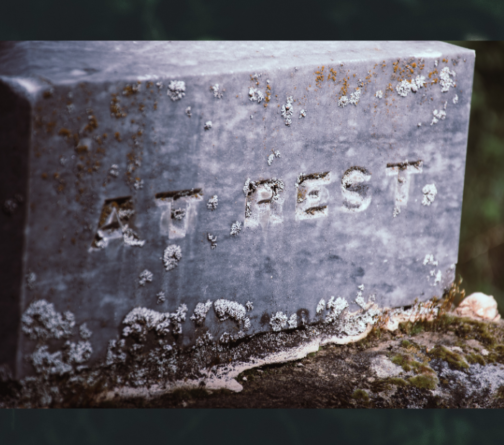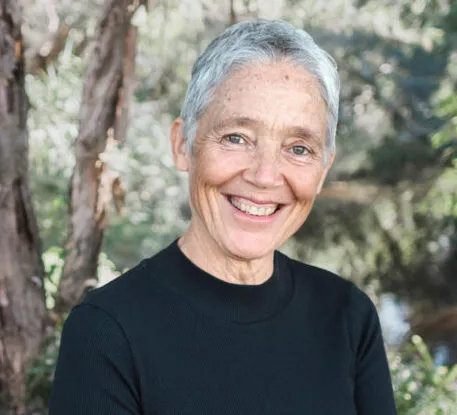Bridging family differences in planning a funeral
Wendy Haynes reflects on a specific occasion where applying Convergent Faciltation principles supported her work with a grieving family.

Note: The names below have been changed to protect privacy.
I recently conducted a funeral ceremony for a man, Sam, who died of a heart attack in his early 60s. Sam had been living with his partner of five years, Nicky.
Sam and his grown son, Eli, had been estranged for many years and had, in the last year, reconnected. They lived in different states and Sam had been to visit Eli and met his grandchildren, but Eli and Nicky had never met before Sam’s death.
The funeral director gave me the contact details for the family. I rang Eli, who had flown in and was staying at his dad’s and Nicky’s home. I felt a deep sense of compassion for how awkward and distressing this time was for them—it was their first meeting and it was to plan Sam’s funeral arrangements. However, they were also providing great support to each other.
I arranged to meet them at Nicky’s house. Eli and Nicky were both trying very hard to make it work, but there was tension and we hit a few hard moments when, with great respect, Eli left the room to take a breather.
They had found Sam’s will and testament, which was over ten years old, and it stated that Sam wanted the Lord’s Prayer to be read at his funeral. Eli was very keen for it to be included, but Nicky said that the prayer no longer reflected who Sam had become, and she was adamant it wouldn’t be read at the funeral.
Nicky showed us a handwritten credo that Sam had by his bedside table, offering this as an alternative. The credo was a series of handwritten, inspirational sentences, which didn’t appear to be suitable for reading at a funeral, but it gave clarity that his beliefs had changed. The tension built in the room. The son held firm with his request.
I paused.
I thought about my options. I could let them figure it out. Or, I could suggest using both. But that would have been a compromise, as Nicky was clear about not including the Lord’s Prayer.
I chose to listen deeply beneath the words for the noncontroversial essence (NCE) of what mattered to each of them. I heard that they both wanted to be true to Sam’s beliefs and wishes.
I looked at the copy of the Lord’s Prayer that Eli had printed out and said, “This prayer is, in many ways, a moral compass, a calling to a higher power to live life with integrity and compassion, with care for others and also for oneself, and respect for one’s own failings.” I paused, and smiled at them both and they agreed.
Then I looked at the credo and said, “In many ways, this is also a moral compass, a call to a higher power to live life with integrity and compassion, with care for others and also for oneself, and to offer respect for one’s own shortcomings.” I paused again. Nicky spoke about the credo and went over some of the points.
They agreed with the essence of what I said and relaxed. I could see they felt heard, understood, and most importantly, they were listening to each other and we were all on the same page.
Three NCEs had emerged through our discussion: they both wanted to respect Sam’s beliefs and wishes; to have a reading that was a moral compass; and to have a reading that they were both willing to have in the ceremony.
I asked for another moment to think, to listen deeply for what was next! Should I put forward a possible solution? Did I want to write a poem? Did I have time?
After some reflection, I turned to them and said, “I’m wondering if you would enjoy me writing a special reading for the ceremony that captures the essence of what is important for Sam, but also for both of you. I will draw my inspiration from the Lord’s Prayer and the credo and put together a draft. How does that sound?”
I didn’t have to put forward any more solutions, as they were both willing to move forward with this offer. There was a feeling of ease in the space and a greater capacity to finish planning the funeral ceremony.
While the newly composed reading was more like the credo, as a result of listening deeply and connecting to what was important for each of them, they were both very happy with the new wording.
About Wendy

Wendy Haynes has been a celebrant in Australia for more than three decades. She also practices and facilitates mindfulness and compassionate communication programs and trained in Convergent Facilitation in 2017. Wendy has conducted thousands of ceremonies, including funerals, which can often be one of the most challenging times for families to gather and make decisions as a group. She has found that CF principles can be particularly supportive in her work with grieving families. The case study above demonstrates how listening for the noncontroversial essence, a central element of CF, can help design ceremonies that work for everyone.
Learn more about her work here: https://wendyhaynes.com/